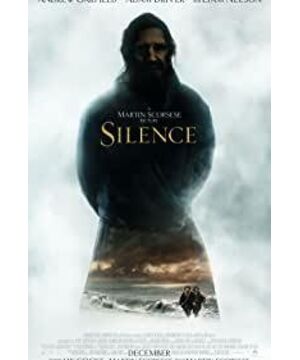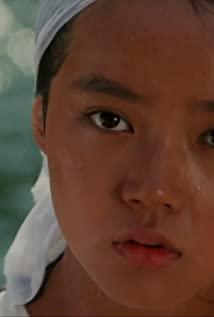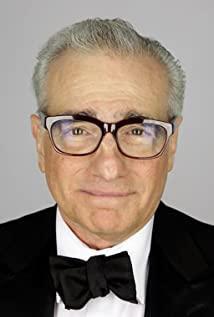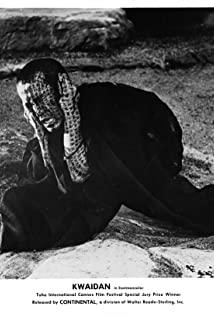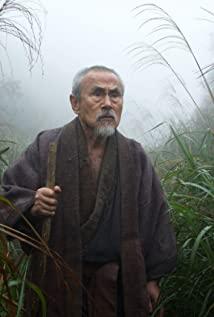To eat and drink, to drink and drink, why are more and more people unhappy?
Because we lack faith.
This may be the most universal and most acceptable answer, but it doesn't seem to answer anything.
1
What is Faith? Is there a need for this materialized form of religion? Is belief a general concept, or is it something specific to each individual with different characteristics? Why do so many great scientists and materialists rise to the stage of religious inquiry in the last stage of life? Is it because when you look back on your life, you find that there are many phenomena that cannot be justified by materialism?
With this kind of doubt, I especially look forward to Martin Sykes's new work "Silence", and it coincides with just returning from Japan. I can observe Japan through the lens of Westerners, which is close and far, familiar and unfamiliar. Magical feeling. However, I have to say that after watching the 160-minute movie, there is a strong sense of oppression that I need to go out to breathe fresh air.
"Silence" is not an oriental diorama - an ups and down story to explore how the West understands oriental beliefs. If you have to summarize the film's outline, you can probably tell it like this - 2 Portuguese missionaries worked hard to get to Japan went to find its own teacher-I heard that an old missionary who had succumbed to the torture of Japanese officials, the last three missionaries died in this strange land of the island country.
However, both the novel and the film try to raise some questions about the rationality of Catholicism: How should we guard our faith? In the movie, the Japanese samurai class, dignitaries all say that their country is not suitable for Jesus Christ to sprout and take root; the translator played by Asano Tadanobu always has a smile on his face, "I have seen you through", and keeps asking the missionaries: You What is the point of coming to preach? How do you know that Catholicism can make us Japanese happier? You don't even speak our language, how can you get to know us better? Moreover, Japan has its own missionaries - Buddhist monks. Buddhism advocates people to be diligent and honest, and to live hard. It has been spread in Japan for thousands of years. You are far away, and you are at the risk of losing your soul to exaggerate the mercy of God and the splendor of heaven. What is it for?
2
Does the rationality of the existence of religions require multiple religions? This is also the area that "Silence" tries to explore.
I am an atheist and have always believed that only I can control my own destiny. I have seen many documentaries and movies about faith and religion, especially a lot about Tom's love - "Scientology" (Scientology). Black pretends to be Bao Gong's cults. Too many religions take advantage of the weakness of human nature - emotional appeal, everyone overestimates their ability to take care of themselves, and begins to mold a false sincerity: in this religion, each other will listen carefully and there is a common reconciliation with demands. However, if you stand outside these religious circles and think about it carefully, the situation of the twins is still different, how can you and I be the same as strangers?
However, the history of religion may be as long as the history of mankind. I used to wonder, why something that seems so illusory can be "unburnt by wildfires and reborn in the spring breeze"? Later, I read "To Atheists", and there is a sentence in it that impressed me:
Religion is completely clear: the existence of benevolence, faithfulness, and sweetness depends precisely on its opposite. Such insight is the most perfect wisdom of religion! A good group also accepts those aspects of our hearts that we do not want to belong to, and it also understands that people may not tolerate a group that is always in order. If we have our own feast of fraternity, then we must also have our own feast of fools.
Arland Bolton is very keen to point out that religion exists because of human beings, which is the opposite of human nature. Goodness is defined precisely because "evil" is hated. Beauty is admired precisely because humans are too smart to always point out ugliness, unlike humans. So religion, in my understanding, has become a melting pot of our desires and fantasies to live in a beautiful world, and it is entrusted with too much that we cannot achieve in objective reality.
Therefore, when I think about the kind and mellow villagers in "Silence" who paid their taxes on time and faced class oppression and mental ravages, there was only silence; Oppressing, simply abandoning the missionary identity, trying to be a Japanese in Japan, refraining from talking about the missionary set, and keeping silent. These are also justifiable and reasonable: some are subtle, as long as you keep them in your chest, silence is the best annotation and dissemination, isn't it?
3
I agree that everyone is a religion, but there are differences in maturity.
Some people have formed a complete personality and established a set of reconciliation with the secular, with themselves, and with the spiritual level, and their religion will be unbreakable and difficult to be influenced by other consciousnesses.
As I got older, I realized that the most disturbing thing in the world is making decisions. Why is everyone's life situation different? Probably because everyone made different decisions, resulting in different choices and different results.
We read and study, communicate with wise people, and even explore our most primitive desires through various forms of religion, all of which are constantly revising our likelihood of making decisions that could hurt us.
Looking at it this way, Endo Shusaku, the author of "Silence", also gave a complete account of his Catholic faith. Whether God exists or not, there is an answer in everyone's heart, and this answer is irrelevant. When people are not happy, it is actually a manifestation of whether they are willing to reconcile with themselves. Religion is just another option for reconciliation.
Finally, Mr. Martin Sykes, you are good at such profound things as human nature, society and the soul. Children's films such as "Hugo" should still be rarely made. This is a movie fan - my immature Small suggestion :)
View more about Silence reviews


